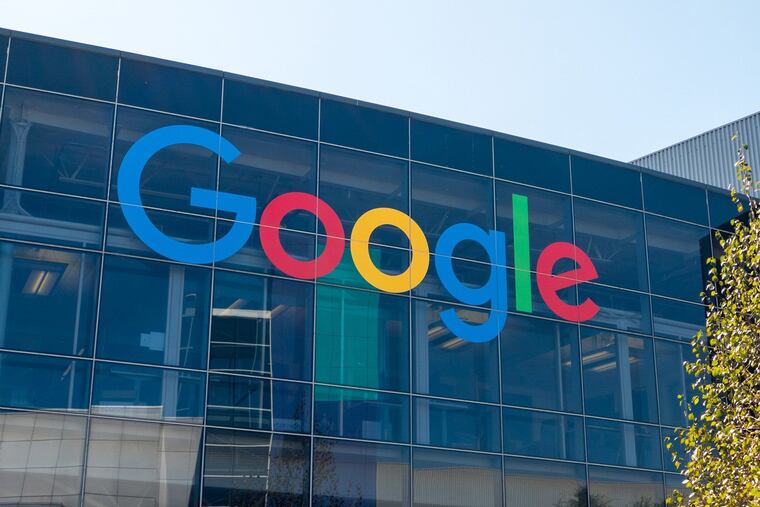Why haven’t Apple and Google shut down their app stores in Russia? Because the U.S. doesn’t want them to.
"It's important for tech companies to maintain those channels. App stores are important alternatives for people to learn what is happening."

Ukraine’s digital officials and some tech-savvy expatriates in the United States have been calling for Apple and Google to cut Russia off from their app stores and for security company Cloudflare to stop protecting Pravda and Russian war propaganda sites from state-backed and activist hackers.
But civil liberties groups and American officials are pushing the other way, arguing that the three California companies provide ordinary Russians with the means to find independent news sources and to connect to activists and nonprofit organizations opposed to the war in Ukraine.
"It's important for tech companies to maintain those channels," said Natalia Krapiva, an attorney at digital rights group Access Now. "App stores are important alternatives for people to learn what is happening."
Asked about the continued presence in Russia of Cloudflare, one of the world's best-known providers of cybersecurity services, a State Department spokesperson said, "It is critical to maintain the flow of information to the people of Russia to the fullest extent possible." The spokesperson agreed to speak only on the condition of anonymity because of the sensitivity of the situation.
Though hundreds of Western companies have pulled out of Russia, well beyond what newly imposed sanctions require, some core technology services are essential for getting tools of communication and potential protest into more hands.
In the weeks since Russia invaded Ukraine and imposed new laws penalizing speech that knocked major news sites off-line, Russians have flocked to the app stores, tech workers there said. Top downloads, according to the analytics firm Similarweb, include virtual private networks for connecting across borders and such messaging apps as Telegram, WhatsApp and Threema, all of which are major ways of sharing unapproved news.
Russian use of private "bridge" connections that relay browser connections over Tor, an anonymity program, also increased just after the war, Tor said.
» READ MORE: Russia says Ukraine talks are progressing as onslaught continues
The news apps are the easiest way to get around censorship, since Russian officials have not managed to get inside their communication with smartphones.
Still, the tech companies have made compromises to avoid employee arrests or other retribution, such as a complete cutoff of the stores. Both Google and Apple deleted imprisoned opposition politician Alexei Navalny's app under dire threats in September, and Apple has not restored it, though Google has. Apple also promotes government-approved apps such as the censored social network VKontakte, which resembles Facebook but is heavily censored.
Apple declined to comment for this article; Google did not respond to a request for comment.
Cloudflare's balancing act is more visible. As of Tuesday, it was protecting sites like TopWar.ru, a news site with headlines like "U.S. forces China to betray Russia" and [Turkish President Recep Tayyip] "Erdogan, standing up for Russians, returns the debt to Russia."
But the company also guards independent media that would otherwise be overwhelmed by the surging number of denial-of-service attacks, which bombard sites with nonsense traffic and render them unreachable.
"It could be that the only thing that the Russian government and the Ukrainian activists agree on is that U.S. tech companies should get kicked out of Russia, and in particular us," Cloudflare chief executive Mathew Prince told The Washington Post. He declined to comment on specific customers that the company protects.
Russia has already directed state-owned agencies to switch to Russian infrastructure providers, and Cloudflare widened the divide by pulling its encryption keys for protecting client information out of Russia, Belarus and even Ukraine, in case its data centers there are captured.
Sympathizers say that if Cloudflare dropped pro-government sites, the Kremlin might ban it for everyone.
"People who are really paying attention, whether that's Western governments or civil society, organizations really tracking what's happening on the ground, they are asking us not to pull out," Prince said. "That makes it, for us, a fairly easy decision."
» READ MORE: Ukrainian President Volodymyr Zelenskyy to face Congress, plead for help
One key reason for the companies to remain in Russia for now is that Russia is nowhere near as advanced in censorship and repression technology as China. Russians can still find outside perspectives and share them, if they go to the app stores and put in some effort instead of following government recommendations to use monitored social networks and messaging systems.
The app store platforms can help in that effort, as opposed to being active participants in censorship and monitoring. The app stores in China are more tightly controlled, with many apps banned.
But the situation is fluid, and U.S. tech company employees say they will have to continually evaluate their roles.
"Companies should assess the human rights impacts of their business decisions in line with the U.N. Guiding Principles on Business and Human Rights," the State Department spokesperson told The Post. Those principles include accepting the responsibility to "avoid causing or contributing to adverse human rights impacts through their own activities, and address such impacts when they occur."
“Companies have the right to choose whether to do business in Russia, and we understand why many may choose not to,” the spokesperson said.